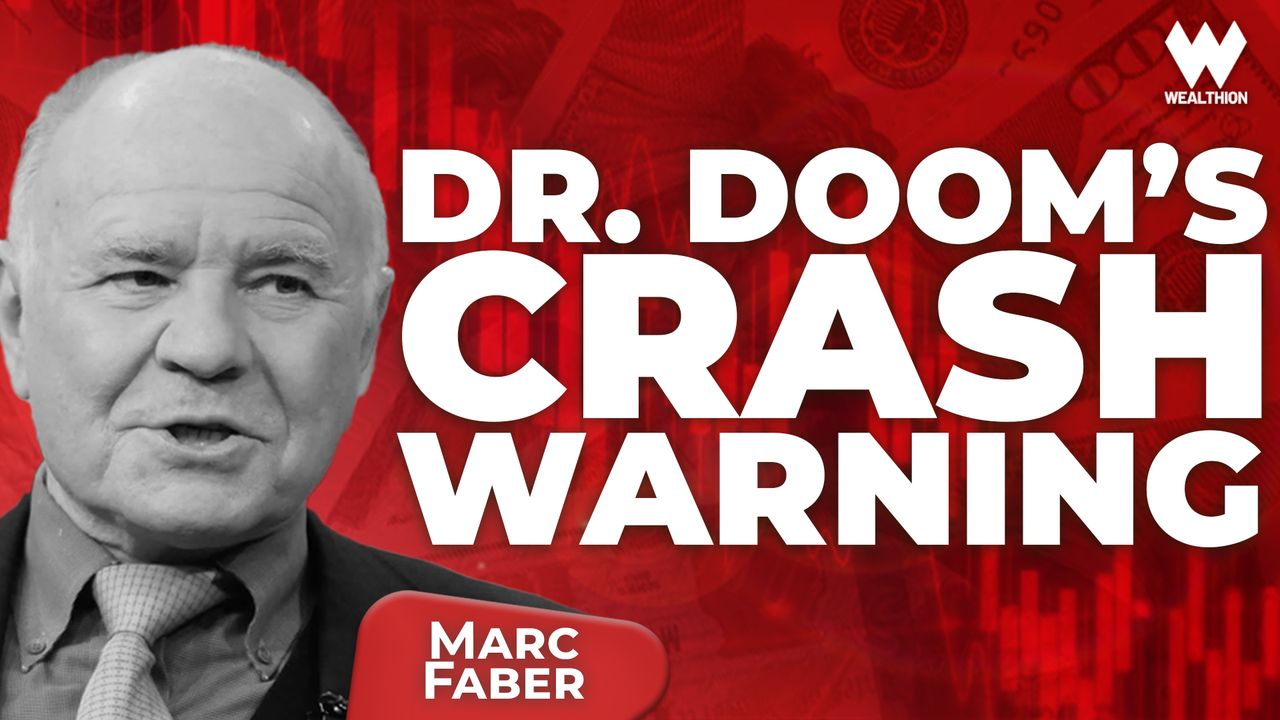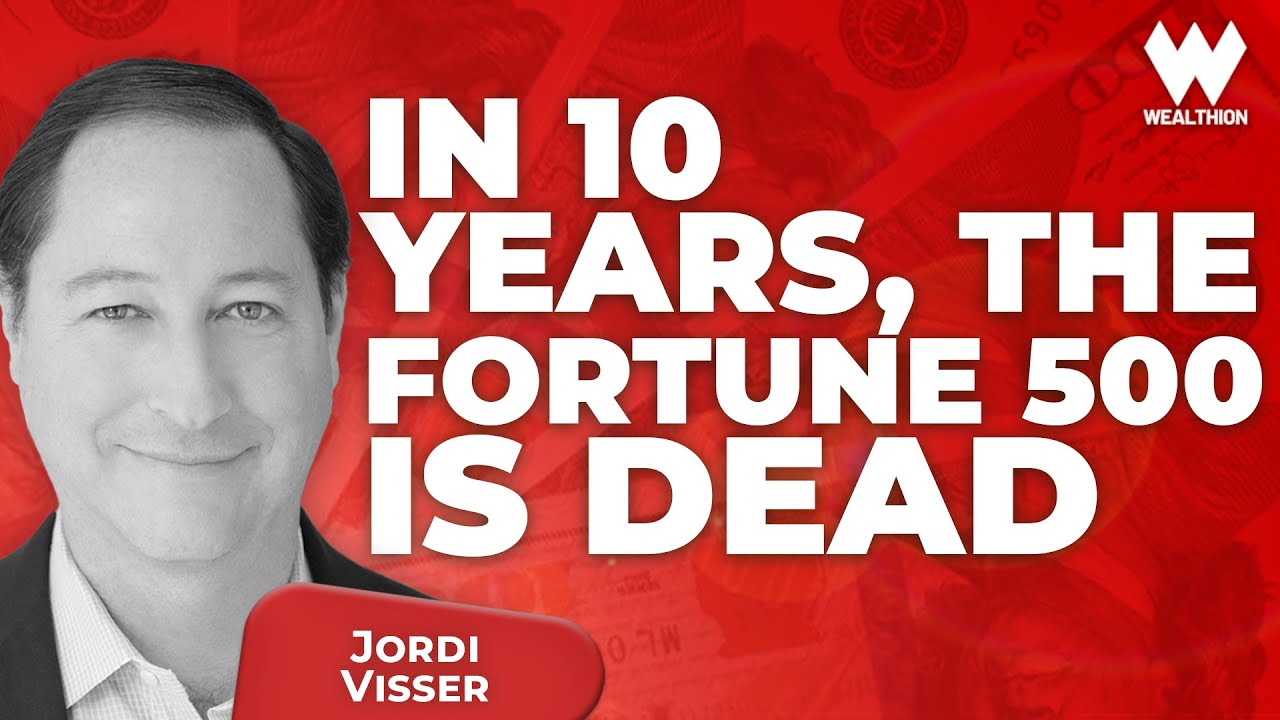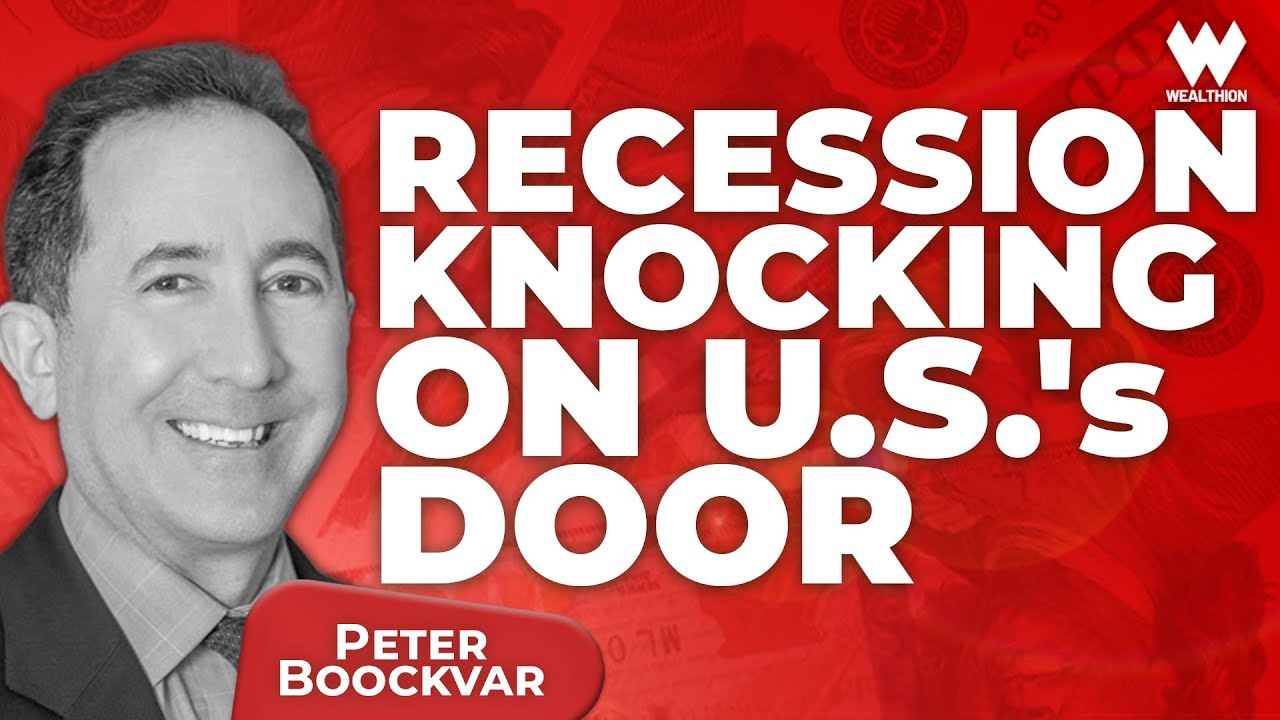As we wrap up the year and celebrate the festive season, we wanted to share some of our favorite moments from one of your favorite Wealthion interviews from 2024: Brent Johnson with Anthony Scaramucci. Enjoy!
All the best for a happy, healthy, and prosperous New Year!
Investment Concerns? Get a free portfolio review with Wealthion’s endorsed financial advisors at https://bit.ly/3W0fMxJ
Original interview, aired Sep 6, 2024: https://youtu.be/RW8QE8ixoao
Andrew Brill 0:00
Happy Holidays from all of us here at wealthion to all of you, I’m one of your hosts here at wealthion. Andrew brill, we took a look back at this year, and hope you enjoy these favorite guest moments from one of our best interviews of 2024
Anthony Scaramucci 0:18
and that is Gordian knot effect.
Brent Johnson 0:20
It’s a Gort. That’s
Anthony Scaramucci 0:22
the dollar. But you can’t get away from the dollar because you’ve already relied on the dollar, and you’ve got your own debt that you got to pay back in dollar denominated assets, and you can’t make dollars, so you’re stuck with the dollar. So so when Vladimir Putin gets out there with she and others, and they want to de dollarize the earth, and they want to come up with a sort of brick currency, or a brick transfer of value, if you will. Can they do that? So
Brent Johnson 0:53
yes and no, I’m going to put a qualifier on this. Anything is possible. So can they do this? Yes, they can do it. Can they do it without pain? No, they cannot do it without pain. And this is the point that I’ve tried to make to people, is it? Listen, it’s not that the dollar can’t go down. The dollar can absolutely go down, but you cannot have, based on the design of the system, you cannot have full scale de dollarization without an enormous amount of pain. And so if the rest of the world were to decide that they are going to take on all of that pain of de dollarization, because remember, money, this is where it starts to get a little complicated. And I know I’m jumping around a little bit, but it’s important to understand this the way money is created, the way money is created, it is loaned into existence. That is why the Euro dollar debts have gotten so big, and why the US dollar debts have gotten so big is because as the monetary system expands and as the as economies expand, they have to take on more debt to do it, because that’s the way the system is designed to increase the supply of money. And so if you’re going to go away from that, if you’re going to decrease the amount of dollars in the system, then you are going to have to de leverage. By definition, you are going to have to de leverage. And deleveraging is a very painful deflationary environment. I don’t know any global leaders who run on a platform of, we are going to have a horrible deleveraging. We’re going to have a depression, but trust me, in 15 years, we’re going to be better for it, and that is why it’s very difficult to do. And the other thing I would say is the countries that can de dollarize to a greater extent, and I would argue that no one can fully de dollarize, but the ones that can de dollarize to a greater extent than others, again, is is like someone like Russia, because Russia has a lot of commodities and a lot of energy. The rest of the world doesn’t have the same advantages that Russia has, right? And so the idea that the whole world can just de dollarize, just because of five politicians get up on stage and hold hands and say, we’re going to create a new BRICS currency? Yeah, they can do it, but it’s going to it’s going to crush their economies in the process. And so my point has been de dollarization. The path to de dollarization is the dollar going higher. If the dollar goes lower, that just perpetuates the current system, because the dollar going lower provides liquidity. If the dollar is going lower, there’s no need to have to pay off all the debt. You’ll actually take on more debt.
Anthony Scaramucci 3:37
We could end up with wild amounts of growth and innovation that surprises everybody, and a result of which we have a even more elongated situation where our economic growth is higher than expected, and therefore our percentage of debt to GDP is actually being diminished by the growth. So a lot of different things can happen. Can a Trump administration who is calling for a weak dollar? Can they weaken the dollar
Brent Johnson 4:06
so they can, but I but I think it’s important to understand at what cost and what they would have to do to do it. And so what I mean by that is, if Trump comes out and just, if he even just says, I want the dollar lower, the dollar is going to sell off on the news initially, right? The market will react to that, but then that would have to be followed up with some kind of concrete measures that last more than a day or two now. So what can they do? So he can pressure the Federal Reserve to lower rates, which perhaps the Federal Reserve will comply with and do that. The problem, though, is that both Trump and Vance have both kind of adamantly said, we’re going to put tariffs on goods coming into the United States from abroad. And if you think about what that actually means, it’s not all that different than a rate hike for the rest of the world. Remember, the rest of the world. People gets dollars in one of two ways. They either trade with the United States, they send us goods. We send them dollars, or they borrow them. Those are the two sources, right? But if, if, if we’ve put if they’re selling goods to us, but now they don’t get as much in return, because there’s a 50% tariff or 30% tariff or an 80% tariff, then the amount of dollars flowing back to those other countries decreases, and if the if the liquidity flowing back to those other countries decreases, but remember, they still have all that US dollar debt that they have to service that puts pressure on those economies, and it puts pressure on the Euro dollar market. It pushes up the price of the Euro dollar, which is linked at par to the US dollar. So it’s not that it can’t happen. It’s just that some of Trump’s policies offset each other, right? And so the one thing that the US has going for it, or they have many things going for it, but one of the biggest things that they are the market that the whole world wants to sell into, right? The rest of the world, if they could no longer sell their product into the United States, they would have to sell it somewhere else. Now, they could sell it somewhere else, but not for the same level of price that they sell it to the United States, but they would still have all that US dollar debt that they have to negotiate and they have to service, and they ultimately have to pay off, so one way or another, they have to get dollars. And so, you know, this idea that Trump can just lower the dollar and there and put on tariffs and there won’t be any problems external to the United States, I think, is wrong. But the other thing I would say is, if he is able to lower the dollar and kind of consistently keep it lower, and the global economy grows as a result, then that is not de dollarization. That’s fine, and that could happen, but that’s not de dollarization again. De dollarization means taking on less US dollar debt, and it means trading in less US dollars, but you still have before you can move on to another system. You have to satisfy the debt.
Anthony Scaramucci 7:14
You have any advice for young professionals entering finance, and so I’m going to start Brent, I would just say you have to read everything. Make sure you’re on top of the wall. Street Journal, even old school things like Barron’s, focus on at least one or two financial books a month. Start with the psychology of money. Morgan Hassel has been on this show. He’s an amazing guy. And work your way through some financial books, but read and ask questions and do what you’re doing right now, which is joining us here on the wealthion network. What can you add to that? Brett, I
Brent Johnson 7:49
think I’d add a couple of things. The first thing I’d say is, I know when you’re young, you always kind of want to prove yourself, make a name for yourself, and that’s how you kind of get ahead. But I would focus on keeping an open mind, rather than always trying to be right, especially when you’re young. Like To your point, read as much as you can listen, as much as you can go into every single meeting and just sit there and listen that you possibly can. It might take 15 or 20 years before you realize the benefit of doing that, but if you do that, it will be a benefit. And then the second thing I would say is, even though you listen to everybody else, even though you read everybody else, you have to have your own opinion. You have to think for yourself, and you have to be able to back those up. So if you do those, if you keep an open mind, but think for yourself, I think you’re going to be ahead of most people. Thanks
Andrew Brill 8:37
again for watching these favorite moments of 2024 and we hope we can continue to provide you with information that will help you invest wisely and be financially resilient. Wishing all of you a healthy, happy, safe and prosperous 2025.




